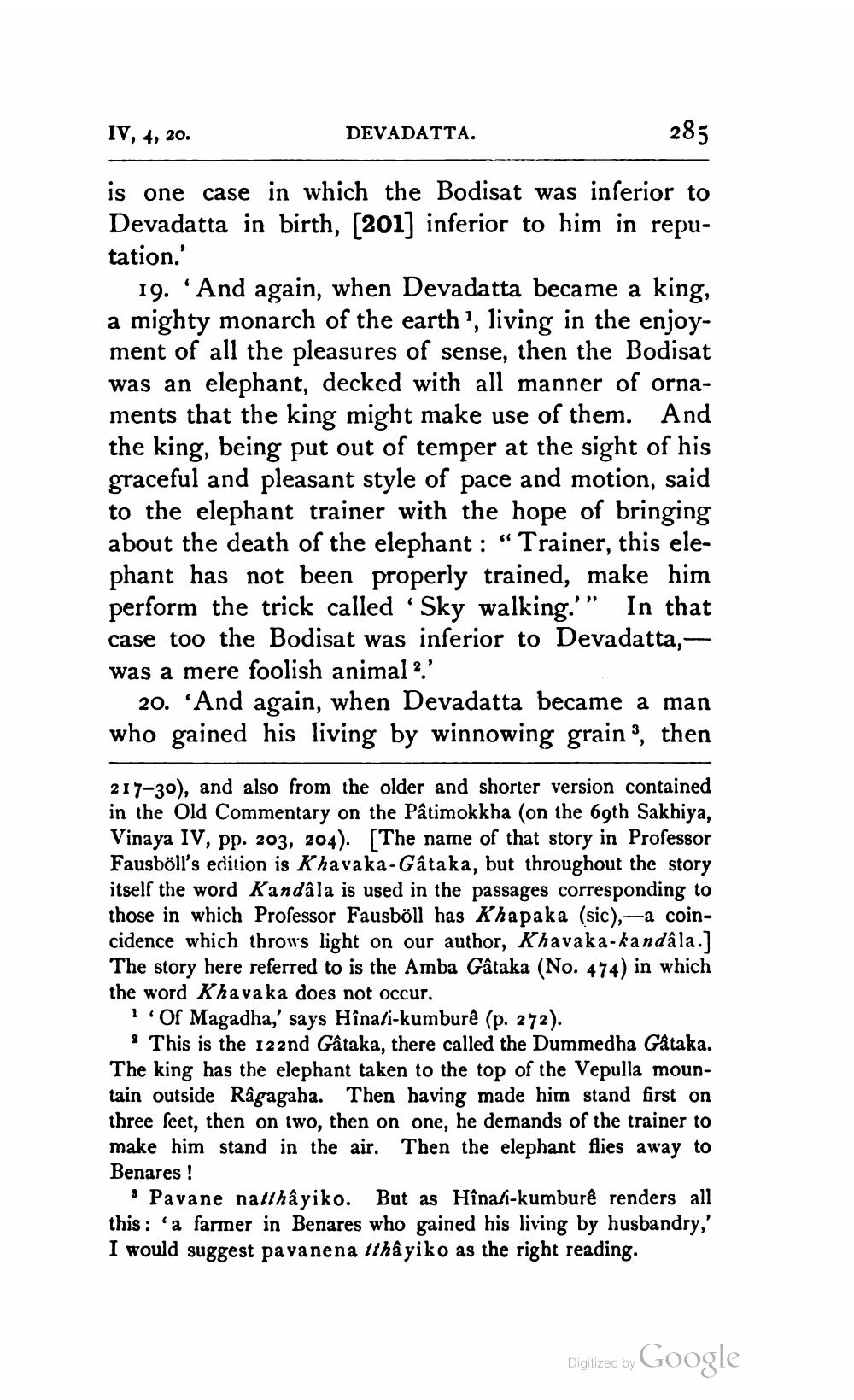________________
285
is one case in which the Bodisat was inferior to Devadatta in birth, [201] inferior to him in repu
tation.'
IV, 4, 20.
DEVADATTA.
19. 'And again, when Devadatta became a king, a mighty monarch of the earth', living in the enjoyment of all the pleasures of sense, then the Bodisat was an elephant, decked with all manner of ornaments that the king might make use of them. And the king, being put out of temper at the sight of his graceful and pleasant style of pace and motion, said to the elephant trainer with the hope of bringing about the death of the elephant: "Trainer, this elephant has not been properly trained, make him perform the trick called 'Sky walking.'' In that case too the Bodisat was inferior to Devadatta,— was a mere foolish animal.'
20. 'And again, when Devadatta became a man who gained his living by winnowing grain 3, then
217-30), and also from the older and shorter version contained in the Old Commentary on the Pâtimokkha (on the 69th Sakhiya, Vinaya IV, pp. 203, 204). [The name of that story in Professor Fausböll's edition is Khavaka-Gâtaka, but throughout the story itself the word Kandâla is used in the passages corresponding to those in which Professor Fausböll has Khapaka (sic),-a coincidence which throws light on our author, Khavaka-kandala.] The story here referred to is the Amba Gâtaka (No. 474) in which the word Khavaka does not occur.
1 'Of Magadha,' says Hînati-kumburê (p. 272).
This is the 122nd Gâtaka, there called the Dummedha Gâtaka. The king has the elephant taken to the top of the Vepulla mountain outside Râgagaha. Then having made him stand first on three feet, then on two, then on one, he demands of the trainer to make him stand in the air. Then the elephant flies away to
Benares !
Pavane natthâyiko. But as Hînan-kumburê renders all this: a farmer in Benares who gained his living by husbandry,' I would suggest pavanena thâyiko as the right reading.
Digitized by Google




